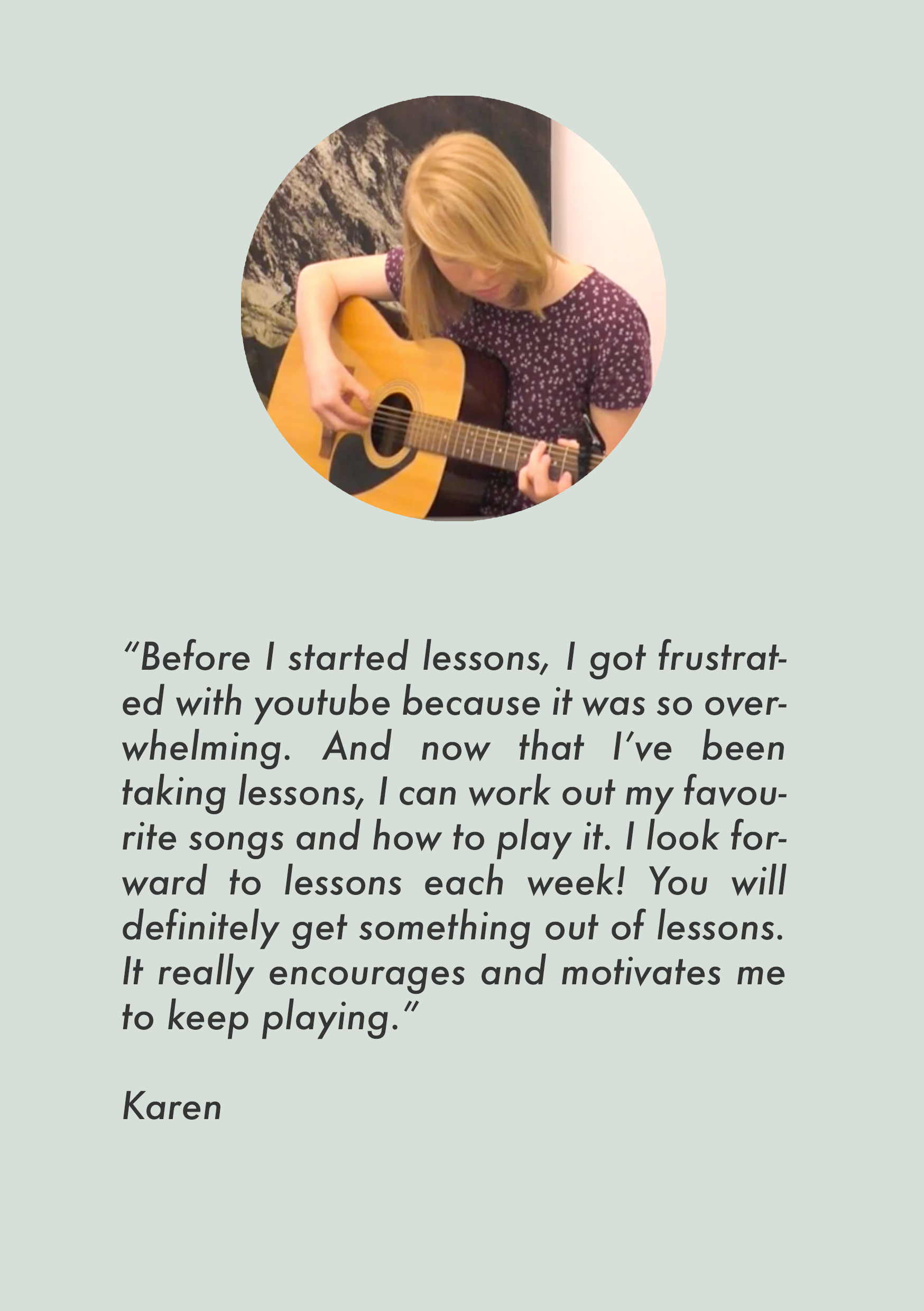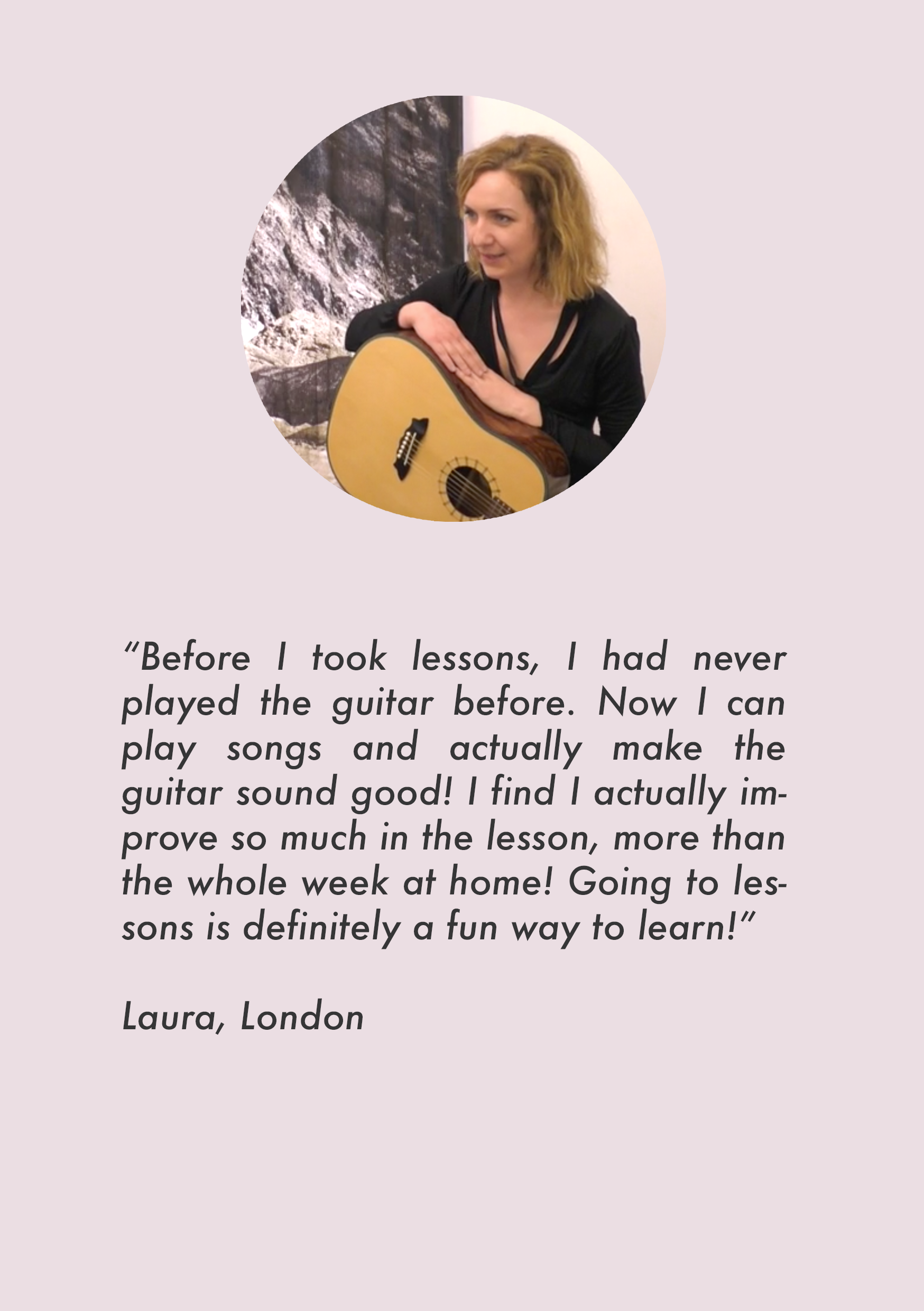Is Your Guitar In Tune But Your Playing Isn’t?
By Brad Litton
Have you ever sat down to play your guitar, got it all tuned up, and when you start to play every note sounds out of tune? Now frustrated, you get out the tuner again and make sure your guitar really is in tune. But when you start playing again, everything still sounds wrong! There could be several reasons why things sound out of tune. Maybe the intonation on your guitar is out, or your strings aren’t stretched out, but a lot of times it’s something much simpler than either of those.
Physical Strength
Naturally with the guitar, there’s a certain amount of physical strength required to push down on the strings to get the notes to sound clearly. In the beginning stages of learning guitar, you have to exert your fingers to press down hard to get the notes to sound out clearly. The big reason for this is because the skin on the tip of your finger is too soft so it takes extra effort to press down the string properly. After a few weeks of diligent practice, your fingers develop calluses that harden the tips of your fingers and make it much easier to press down the strings.
With many guitar players, though, they continue to push down hard on the strings even after they’ve developed calluses and developed the finger strength that make it easier to press down. This then shortens the string and raises the pitch a bit and makes everything you play sound out of tune. This is how a lot of players can have their guitar in tune and sound out of tune when they play.
Are you?
Have you been pushing down too hard with your fingers? Here’s how you can check. After tuning your guitar up, fret a note exactly the way you normally play it and check it with the tuner. If the note is sharp, you’re probably pushing down too hard. To fix it, while you are fretting the note, play the note over and over each time letting up on the pressure you’re applying just a tiny bit at a time. When you get to the point of the note buzzing on the fret from a lack of pressure, apply just a little bit more until you get a clear note that is in tune. It will probably surprise you how little effort it really takes to get the note to sound out clearly.
To really ingrain this into your playing and stop pressing down on notes too hard here’s a simple solution for you. Begin your practice session with a few minutes of you playing a scale or lick you know and practice it extremely, extremely slow. As in, don’t play it any more than 25% of your maximum speed for that scale or lick. Even slower is better. And the whole time you’re playing it, focus on only using enough effort to get the note to sound clearly and no more. Doing this for a couple weeks every single day will help you build this new habit of only pressing the notes down as much as is needed.
On top of this
On top of this, making sure your guitar is maintained and set up properly so your intonation is correct is crucial to making sure this works. Making sure that you’re not using too much strength and you are in tune is one thing that will really affect the sound of your playing. Plus it will help you avoid the problems associated with playing with too much tension in your hand and help you train your ears to hear better because you will get used to hearing things in the correct pitch instead of slightly sharp. Which will not only make it easier on you and your playing, but it will be much easier on those that listen to you play.
Brad Litton is the owner of The Rock Academy. A guitar school where serious guitar students can experience awesome guitar lessons in Vernal, UT and learn guitar 3x faster than usual.
Copyright © Litton Music, Inc.

















